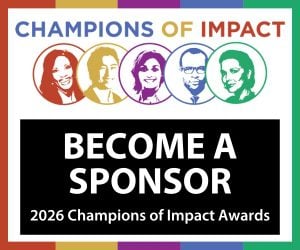On Feb. 7, 2018, James Carey III received a heart transplant. Two days later, he received a kidney from the same donor.
“His life was a blessing,” Carey said of his donor. “And I will take care of the gift.”
After being diagnosed with congestive heart failure in 2002, Carey, 48, had to make several life changes, including significant weight loss, to get on the waiting list for a transplant. After the disease caused severe damage to the right side of his heart, Carey underwent 23 hours of dialysis a day for a week to remove fluid from his kidneys to treat the heart problem. After being approved for the heart transplant waiting list in 2017, Carey learned his kidneys were failing due to the aggressive dialysis treatments.
Luckily, after meeting with the kidney transplant team at Methodist Hospital, Carey was cleared to be placed on both the heart and kidney transplant waiting list just four days after being diagnosed with kidney failure.
While waiting on the transplants, Carey was one of the nearly 114,000 Americans on the waiting list to receive an organ donation, according to the American Transplant Foundation. While he said he wasn’t on the waiting list as long as other patients, Carey described the waiting period as feeling like a lifetime. Had it not been for his faith, he said, he wouldn’t have gotten through it.
“God showed me a dream of two angels holding a box,” Carey said. “And my heart was in there. … My faith was stronger than it ever had been. If my faith wasn’t there, I wouldn’t have been able to go through such a time.”
Carey, who has type O blood could only receive a heart and kidney from someone who was also type O, just one of the many obstacles that stand in the way of organ donation recipients finding a match.
According to Donate Life America, only 54% of Americans are registered organ donors. Of that 54%, only 1% of people will have viable organs at the time of their death, according to Ebony Chappel, the multicultural community relations coordinator for Indiana Donor Network.
A large factor in organ viability has to do with time and location. While some organs, such as kidneys, can be held for up to 72 hours before transplantation, a heart must be transplanted within five hours of being procured.
Another obstacle for organ donation? Misconceptions held by the American public.
According to Chappel, one of the biggest misconceptions she hears is doctors not doing everything in their power to save someone if they are an organ donor.
“There are so many things that has to happen for a match to occur,” Chappel said. “They have to have the right blood type, body size … the person has to be located geographically close enough that the organ can be transported quickly enough. It’s considered a miracle because all of these things have to match up. It eliminates the idea that doctors are sitting around intentionally letting people die.”
Chappel believes a large reason for misconceptions and mistrust toward health care, especially among African Americans, has to do with systemic discrimination and inaccuracies in popular media.
“I think it is an overall issue of people of color and people from impoverished communities having an earned mistrust of the medical community,” she said. “Earned mistrust stems from being discriminated against from certain systems … if you grew up in a community where you heard grandparents or parents say certain things, even if it was a myth, there’s enough discrimination going around that you think everything is nefarious.”
Portrayals of organ donation and procurement in television and movies are often inaccurate, creating more misconceptions about organ donation and procurement — including the idea that organs are harvested for transplant use, and that organs can be bought and sold to the highest bidder. Both are untrue, Chappel said.
Through educational events and programming, Chappel and the Indiana Donor Network hope to continue to dispel the myths that surround organ donation. More importantly, they hope to share the message that one donor has the ability to help 83 people through organ, eye and tissue donation.
“People of color make up 60% of the organ donation waiting list,” Chappel said. “The need is growing and eminent. One thing I love to share with people is how donation gives you the ability to leave a legacy on this planet when you’re no longer here.”
For Carey, his heart and kidney transplant gave him a second chance at life. While he hasn’t contacted the family of his donor yet, he is working on a letter thanking them for respecting the donor’s wishes.
Two years after his transplants, Carey is an advocate for organ donation and hopes to encourage others to join the donor registry.
“You can help so many people,” he said. “ … If you never did nothing in life, you left doing something.”
Contact staff writer Breanna Cooper at 317-762-7848. Follow her on Twitter @BreannaNCooper.





